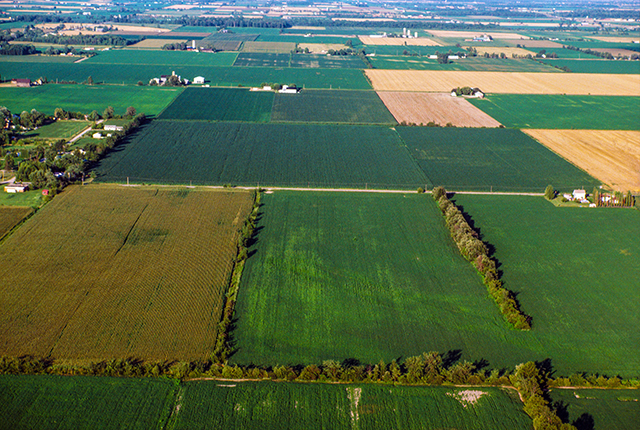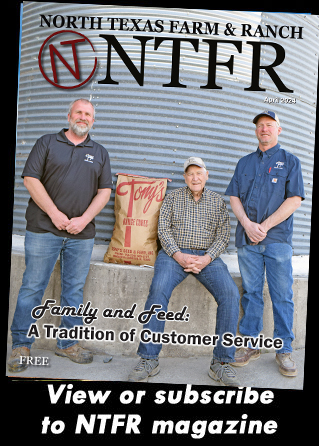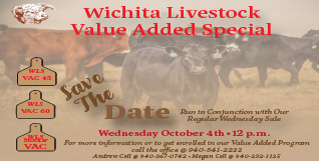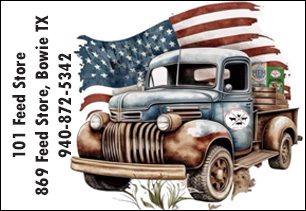Country Lifestyles
Clark Willingham to Receive National Golden Spur Award on Oct. 15

Ranching and Livestock Industries Present Top Award to Texas Native
Clark S. Willingham has been named the 2022 National Golden Spur Award recipient in recognition of his dedication to the ranching and livestock industries.
“This award recognizes iconic industry leaders whose devotion to land and livestock has earned them the notable respect and admiration of their peers,” said Jim Bret Campbell, executive director of the National Ranching Heritage Center at Texas Tech University in Lubbock, Texas. “It is the most prestigious honor given to one person by the ranching and livestock industries.”
Willingham will be honored during the National Golden Spur Award dinner at 6 p.m. Saturday, Oct. 15 at the Overton Hotel in Lubbock. He is the 44th recipient of the award, which was established in 1978 and is jointly sponsored by the American Quarter Horse Association, National Cattlemen’s Foundation, Ranching Heritage Association, Texas Cattle Feeders Association, Texas Farm Bureau, and Texas and Southwestern Cattle Raisers Association.
“I love being associated with the industry and its great people,” said Willingham. “Being engaged with cattle associations gave Jane and me the opportunity to travel, experience new things and make a difference.”
Willingham continues to take an active role in state and national organizations. He currently serves on the NCBA Tax Committee and Audit Committee and Trustee and Treasurer of the National Cattlemen’s Foundation where he serves on the Environmental Stewardship Award Selection Committee. He is also the Board Chair of the Texas Rangers Law Enforcement Association.
A native Texan born in Houston and raised in Dallas, Willingham graduated from Texas Tech University with a bachelor’s degree in accounting and received his J.D. and master’s degree in tax law from Southern Methodist University where he met his wife, Jane Hitch.
Married for more than 50 years, Clark and Jane continue to live in Dallas, where they enjoy spending time with their two adult children, their spouses and six grandchildren. Willingham is a member of the American Law Institute and continues practicing law in the areas of agriculture, income tax and estate planning with the firm Howell & Willingham PLLC.
To register for the National Golden Spur Award dinner, call Vicki Quinn-Williams at 806-834-0469 or register online at ranchingheritage.org. Reservations are required by Thursday, October 6. Tickets are $95 for Ranching Heritage Association members, $125 for non-members, $2,500 for a choice table for eight, and $5,000 for a prime table for eight.
Country Lifestyles
While We Were Sleeping

By Martha Crump
That old adage, “What you don’t know won’t hurt you.,” may have some basis in truth when applied to minor situations. However, when what you don’t know is presented in the form of a “Trojan Horse” and is what amounts to an incredible attempt to fleece American property rights, it becomes a different story altogether.
To put this unbelievable tale together, we need to step back to Joe Biden’s 2021 Executive Order which pledged commitment to help restore balance on public lands and waters, to create jobs, and to provide a path to align the management of America’s public lands and waters with our nation’s climate, conservation, and clean energy goals.
To read more, pick up a copy of the April issue of NTFR magazine. To subscribe by mail, call 940-872-5922.
Country Lifestyles
Lacey’s Pantry: Strawberry Sorbet

By Lacey Vilhauer
Ingredients:
1 whole lemon, seeded and roughly chopped
2 cups sugar
2 pounds strawberries, hulled
Juice of 1 to 2 lemons
¼ cup water
Directions:
Place the chopped lemon and sugar in a food processor and pulse until combined. Transfer to a large bowl. Puree the strawberries in a food processor and add to the lemon mixture along with juice of one lemon and water. Taste and add more juice as desired.
To read more, pick up a copy of the April issue of NTFR magazine. To subscribe by mail, call 940-872-5922.
Country Lifestyles
A Mountain Out of a Molehill

By Nicholas Waters
As winter plods along – come Spring and gopher mounds – homeowners and farmers find themselves playing a familiar song – fiddling while Rome is burning.
Let’s make a mountain out of a molehill. Those mounds on your lawn and pasture could be moles, but they’re more than likely gophers; Plains Pocket Gophers to be pragmatic – Geomys bursarius to be scientific.
These rodents dig and chew, and the damage they can do goes beyond the mounds we mow over. Iowa State University cited a study in Nebraska showing a 35 percent loss in irrigated alfalfa fields due to the presence of pocket gophers; the number jumped to 46 percent in decreased production of non-irrigated alfalfa fields.
The internet is replete with academic research from coast-to-coast on how to curtail gopher populations, or at least control them. Kansas State University – then called Kansas State Agricultural College – also published a book [Bulletin 152] in February 1908 focused exclusively on the pocket gopher.
To read more, pick up a copy of the April issue of NTFR magazine. To subscribe by mail, call 940-872-5922.
-

 Country Lifestyles1 year ago
Country Lifestyles1 year agoScott & Stacey Schumacher: A Growth Mindset
-

 Equine7 months ago
Equine7 months agoThe Will to Win
-

 Country Lifestyles7 years ago
Country Lifestyles7 years agoStyle Your Profile – What your style cowboy hat says about you and new trends in 2017
-

 Country Lifestyles4 years ago
Country Lifestyles4 years agoAmber Crawford, Breakaway Roper
-

 HOME7 years ago
HOME7 years agoGrazing North Texas – Wilman Lovegrass
-

 Country Lifestyles7 years ago
Country Lifestyles7 years agoDecember 2016 Profile, Rusty Riddle – The Riddle Way
-

 Country Lifestyles8 years ago
Country Lifestyles8 years agoJune 2016 Profile – The man behind the mic: Bob Tallman
-

 Outdoor9 years ago
Outdoor9 years agoButtercup or Primrose?






